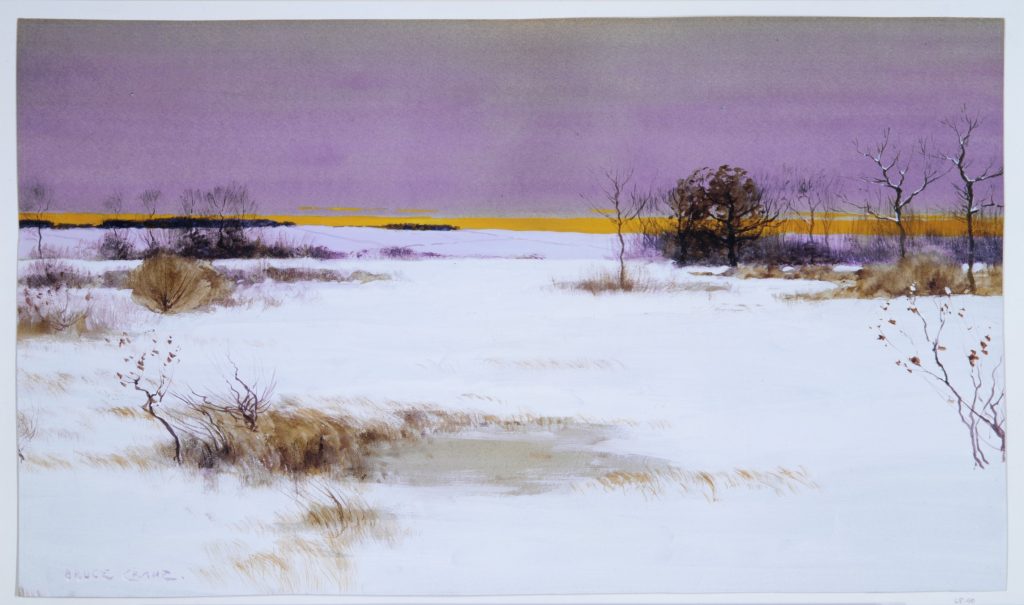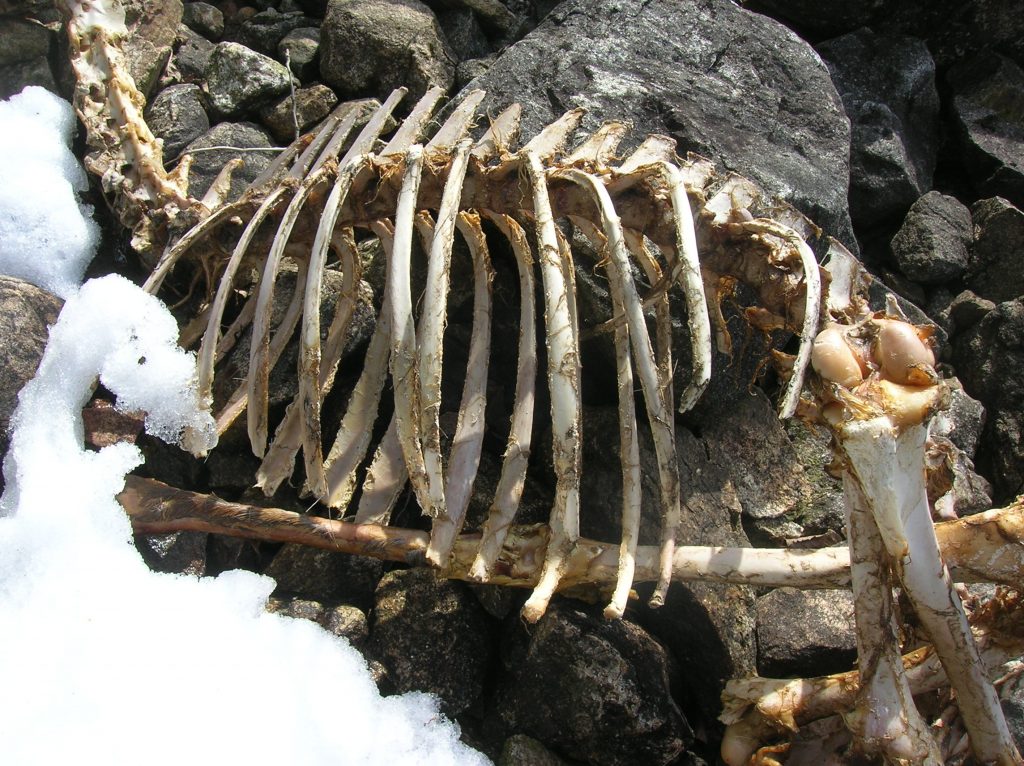“Letter in the New Year,” by Donald Hall, appeared in the Summer 1997 issue of Michigan Quarterly Review.
*
to Jane Kenyon
New Year’s Eve I babysat
the girls in Concord, napping
on the sofa. In Seattle
last year we slept through
as usual, except that your sugar
went crazy from Prednisone.
I pricked your finger
every four hours all night
and shot insulin.
The year
of your death was not usual
and this new year is offensive
because it will not contain you.
For six months Gus flung himself
down in the parlor all day,
sighing enormous sighs.
Now he lies beside me
where I sit in my blue chair
eating bagels in the morning,
watching basketball by night,
or beside our black-and-gold bed
where I read and sleep.
Ada curls on my other side.
I’m what they’ve got;
they know it.
Stepping outside,
I check the weather to tell you:
The sun is invisible, still
ascending behind Ragged,
but west of the pond, its rays
pass overhead to light
the snow on Eagle’s Nest.
The moon blanches in a clear sky,
with one cloud scudding
to the south over Kearsarge
which turns lavender at dawn.
Time for the desk again.
I tell Gus, “Poetryman
is suiting up!”
The bulletin
this January is snow.
New Canada is a “One Lane Road”
along the old pasture’s woodlot.
The hills collapse together
in whiteness squared out
by stone walls that contain
wavery birches and boulders
softened into breasts. White
yards and acres of snowfield
reflect the full moon,
and at noontime the sky
turns its deepest blue
of the year. I puff as Gussie
and I walk over packed snow
at zero, my heart quick
with joy in the visible world.
Do you remember our first
January at Eagle Pond,
the coldest in a century?
It dropped to thirty-eight below—
with no furnace, no storm
windows or insulation.
We sat reading or writing
in our two big chairs, either
side of the Glenwood,
and made love on the floor
with the stove open and roaring.
You were twenty-eight.
If someone had told us then
you would die in nineteen years,
would it have sounded
like almost enough time?
This month Philippa and her family
moved into a house they built
on wooded land in Bow.
Each girl has her own room.
I gave Abigail a bookcase
and Allison a grown-up oak desk.
As I read them story books
on the sofa, I thought of you
making clothespin dolls
with Allison, to put on a show;
you were supporting actress.
When you were dying, you fretted:
“What will become of Perkins?”
The children telephone each morning
and our friends look after me:
I meet Galway and Bobbie for supper
in Norwich; Bobbie consoles me,
wearing your Christmas
cashmere sweats. Liam and Tree
bounce and exaggerate
the way we four did together.
When Alice took Amtrak
and Concord Trailways to visit
before Christmas, we watched
the Sunday School pageant.
Sometimes I weep for an hour
twisted in the fetal position
as you did in depression.
Hypochondriac, I fret over Gus
and decide he’s got diabetes.
In daydream I spend afternoons
digging around your peonies
to feed them my grandfather’s
fifty-year-old cow manure.
Next week maybe I’ll menstruate.
I want to hear you laugh again,
your throaty whoop. Every day
I imagine you widowed
in this house of purposeful quiet.
You would have confided in Gus
and reproached Ada, lunched
with friends in New London,
climbed Kearsarge, wept,
written poems, and lay unmoving,
eyes open, in bed all morning.
You would have found
a lover, but not right away.
“The sexual intercourse
of angels,” Yeats
in old age wrote his old love,
“is a conflagration
of the whole being.”
*
Image: Crane, Bruce. “Snow Scene.” Watercolor and gouache on blue-gray wove paper. The Metropolitan Museum of Art, New York.



